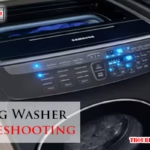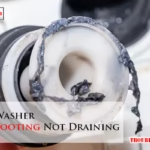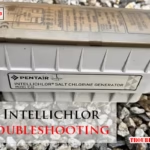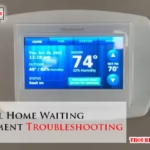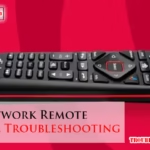Is your Blueridge mini split acting up and leaving you frustrated? Don’t worry—you’re not alone.
When your heating or cooling system isn’t performing as it should, it can feel overwhelming, especially if you’re unsure where to start. The good news? Many common issues can be resolved quickly with the right guidance. We’ll walk you through practical troubleshooting tips to get your Blueridge mini split back to working like new.
Whether it’s strange noises, poor airflow, or a unit that just won’t turn on, we’ve got you covered. Stick around—you might just save yourself a costly service call and the headache of being without a comfortable home. Ready to dive in? Let’s get started!
Common Mini Split Problems
Mini split systems like Blueridge are incredibly efficient, but they aren’t immune to occasional hiccups. From units that refuse to power on to unexpected water leaks, these issues can leave you scratching your head. Knowing the common problems can help you troubleshoot faster and potentially save on repair costs.
Unit Not Turning On
A mini split that won’t turn on is frustrating. Start by checking if the remote batteries are dead or if the power switch is off. If those are fine, inspect your circuit breaker—it may have tripped.
Still no luck? Look at the wiring connections to ensure nothing is loose. Sometimes, rodents or wear-and-tear can damage wires. If you’re not comfortable handling electrical components, it’s best to call a professional.
Poor Cooling Or Heating
Does your unit struggle to cool in summer or heat in winter? First, clean the air filters. Dirty filters block airflow and reduce efficiency.
If cleaning doesn’t fix it, check the outdoor unit for obstructions like leaves or debris. Restricted airflow can cause performance issues. A low refrigerant level could also be the culprit, but that requires professional servicing.
Unusual Noises
A noisy mini split can be distracting and might signal a deeper issue. Clicking sounds could mean a loose part inside the unit. A buzzing noise might point to an electrical problem.
If you hear rattling, check the outdoor unit for anything that might be stuck in the fan. Always address strange sounds early—they can escalate into costly repairs if ignored.
Water Leaks From The Unit
Noticing water dripping from your mini split? It’s often a clogged or disconnected drain pipe. This happens when dirt or algae block the line.
Another possibility is a low refrigerant level, which can cause the evaporator coil to freeze and leak water as it thaws. Regular maintenance can help prevent this. If the issue persists, you might need a technician to inspect your unit.
So, which of these problems have you faced? Taking a proactive approach to maintenance can save you time and money. Don’t wait for a small issue to turn into a big headache!

Diagnosing Power Issues
Power issues with your Blueridge mini split can disrupt its performance. Understanding the root cause is essential to restore its functionality. This guide will help you pinpoint and resolve common power-related problems.
Checking Power Supply
Start by verifying the unit’s power supply. Ensure the mini split is connected securely to a working outlet. Use a voltage tester to confirm electricity is flowing to the unit. If no power is detected, inspect the outlet or wiring for damage.
Inspecting The Circuit Breaker
Look at the circuit breaker that powers your mini split. A tripped breaker will cut electricity to the unit. Reset the breaker by switching it off and then on. If it trips again, there may be an electrical issue requiring professional attention.
Testing The Remote Control
The remote control plays a key role in powering your unit. Check the batteries and replace them if needed. Ensure the remote is pointed directly at the receiver. Test its functionality by pressing the power button. If the unit doesn’t respond, the remote might need repair or replacement.
Airflow And Temperature Problems
Blueridge mini-split systems are known for their efficiency and reliability. Yet, they can sometimes face airflow or temperature issues. These problems can reduce comfort and increase energy usage. Identifying and addressing the cause quickly can restore proper performance. Common culprits include dirty filters, outdoor unit blockages, or incorrect thermostat settings.
Cleaning Air Filters
Dirty air filters block airflow and strain the system. This can lead to uneven cooling or heating. Remove the filters and clean them with mild soap and water. Rinse thoroughly and let them dry completely before reinstallation. Clean the filters every two to four weeks for optimal performance.
Inspecting Outdoor Unit
A blocked outdoor unit can disrupt airflow and reduce efficiency. Check the unit for debris like leaves, dirt, or snow. Clear any obstructions around the unit to allow proper airflow. Ensure that the fan blades are clean and free from dust buildup. Regular maintenance prevents airflow issues from recurring.
Adjusting Thermostat Settings
Incorrect thermostat settings can cause temperature inconsistencies. Verify that the thermostat is set to the desired mode. For cooling, set it to “Cool,” and for heating, set it to “Heat.” Adjust the temperature settings to meet your comfort needs. Avoid frequent setting changes, as this can strain the system.

Dealing With Refrigerant Leaks
Dealing with refrigerant leaks in your Blueridge mini split system can be frustrating. Refrigerant leaks not only reduce efficiency but can also damage the system over time. Identifying, addressing, and preventing leaks is crucial to keeping your system running smoothly. Let’s break down the steps to handle refrigerant leaks effectively.
Identifying Signs Of A Leak
Refrigerant leaks often show clear warning signs. One common sign is reduced cooling or heating performance. Your system might struggle to reach the desired temperature. Another sign is higher energy bills without increased usage. Leaks force the system to work harder, consuming more energy.
Unusual hissing sounds from the unit may also indicate a leak. Ice buildup on the evaporator coil or refrigerant lines is another red flag. If you notice these symptoms, it’s time to investigate further.
When To Call A Technician
Some issues with refrigerant leaks require professional help. If your system stops cooling completely, contact a qualified technician. Refrigerant handling requires proper tools and certifications. Attempting to fix leaks on your own can worsen the problem.
A technician can locate the exact source of the leak using specialized equipment. They will repair the leak and recharge the system with the correct refrigerant levels. This ensures your unit operates efficiently and safely.
Preventing Future Leaks
Regular maintenance can help prevent refrigerant leaks. Schedule yearly inspections to identify potential issues early. Technicians can check for wear and tear on refrigerant lines and seals.
Keep your system clean and free of debris. Dirt and dust can stress the components, increasing the risk of leaks. Ensure proper installation, as poor setup can lead to loose connections and leaks over time.
By staying proactive, you can minimize the chances of refrigerant leaks in the future.
Fixing Unusual Noises
Unusual noises from your Blueridge mini split can be frustrating. They often point to small issues that need quick fixes. Ignoring these noises can lead to bigger problems. It’s essential to address them early for smooth operation.
Tightening Loose Components
Loose screws or panels can cause rattling sounds during operation. Inspect the unit carefully for loose bolts or screws. Use a screwdriver to tighten any visible loose components. Ensure the panels are securely attached to avoid vibrations.
Clearing Obstructions
Debris or dirt inside the mini split can create strange noises. Check the outdoor and indoor units for blockages. Clean the area around the unit and remove foreign objects. A clear airflow reduces sound and improves efficiency.
Assessing Fan And Motor Issues
Worn-out fans or motor bearings can produce grinding or buzzing sounds. Turn off the unit and inspect the fan blades for damage. Look for signs of wear on the motor. If problems persist, consult a professional for repairs or replacements.
Addressing Water Leaks
Water leaks in a Blueridge mini split system can cause frustration. They may also lead to damage if not resolved quickly. Identifying the root cause is essential to fix the issue. Below are common areas to check to address water leaks effectively.
Checking Drain Line
A clogged or disconnected drain line is a common cause of leaks. First, inspect the drain line for any visible blockages. Dirt, debris, or algae buildup can restrict water flow. Use a wet/dry vacuum or a soft brush to clear any clogs. Also, ensure the line is securely connected to the unit. A loose connection can lead to water dripping inside your space.
Inspecting Condensate Pump
The condensate pump removes excess water from the unit. If it malfunctions, water can pool and leak. Check the pump for signs of damage or failure. Listen for unusual noises, which may indicate a problem. Clean the pump and its components to ensure smooth operation. Replace the pump if it no longer functions properly.
Ensuring Proper Unit Installation
Improper installation can disrupt water drainage. Verify the indoor unit is level and securely mounted. An uneven unit can cause water to accumulate and overflow. Check that the outdoor unit is also installed correctly. Ensure the drain line is sloped downward to allow proper water flow. Address any installation errors to prevent recurring leaks.
Maintenance Tips For Longevity
Proper maintenance ensures your Blueridge mini split system runs efficiently. Regular care also extends its lifespan and prevents costly repairs. A few simple practices can keep your unit performing at its best for years.
Regular Cleaning Schedule
Dust and dirt can clog your system, reducing efficiency. Clean the air filters monthly to maintain airflow. Use a soft brush or rinse filters under cool water. Let them dry completely before reinstalling. Wipe down the outdoor unit to prevent debris buildup. Ensure the vents are free from obstructions, like furniture or curtains.
Seasonal Inspections
Inspect your system at the start of each season. Check for visible signs of wear or damage. Look for leaks, unusual noises, or inconsistent cooling. Ensure the outdoor unit is free from leaves, branches, or other debris. Seasonal checks help catch small issues before they grow into bigger problems.
Professional Maintenance Services
Schedule professional servicing at least once a year. Experts can clean internal components, check refrigerant levels, and test system efficiency. They also identify hidden problems that may affect performance. A professional tune-up ensures your mini split runs smoothly for years.

When To Seek Professional Help
When your Blueridge mini split system starts acting up, it’s tempting to try fixing it yourself. While some issues are straightforward, others can be tricky and risky to handle without proper expertise. Knowing when to call in a professional can save you time, money, and prevent further damage.
Signs You Can’t Ignore
Some problems demand immediate attention from a technician. If your mini split stops cooling or heating entirely, it’s more than just a minor inconvenience. This could point to a refrigerant leak or compressor failure, which are not DIY-friendly.
Unusual sounds like grinding or buzzing could mean internal components are wearing out or misaligned. Ignoring these noises might lead to expensive repairs later.
Electrical issues, such as the unit repeatedly tripping the breaker, should never be handled casually. Attempting to fix such problems without proper knowledge can be dangerous.
Choosing A Certified Technician
Not all technicians are created equal. Always choose someone certified to work on Blueridge mini split systems. Certification ensures they understand the specific design and requirements of your unit.
Look for reviews or testimonials before hiring. A technician with a track record of solving mini split issues quickly and effectively is worth the investment.
Ask questions. A good professional will explain the problem and outline solutions without overwhelming you with technical jargon.
Cost Vs. Benefits Of Repairs
Repairs can seem costly upfront, but weigh them against the benefits. Fixing a refrigerant leak or replacing a faulty compressor ensures your system runs efficiently, saving you money on energy bills.
Compare repair costs with replacement costs. If the repair is nearly as expensive as a new unit, it might be time to upgrade.
Consider the long-term comfort. A functioning mini split provides consistent heating and cooling, keeping your home comfortable year-round.
When was the last time you had your system serviced professionally? If you’re unsure, it might be worth scheduling a check-up to avoid unexpected breakdowns.
Conclusion
Troubleshooting your Blueridge mini split can feel challenging but is manageable. Start with basic checks like power supply and settings. Clean filters regularly to avoid common issues. For complex problems, consult the user manual or a technician. Routine maintenance helps keep your system running efficiently.
Addressing issues early can save time and money. Stay patient and follow step-by-step solutions. A well-maintained unit ensures reliable performance and comfort. Remember, small efforts can prevent big repairs later. Keep your mini split in good shape for years to come.


